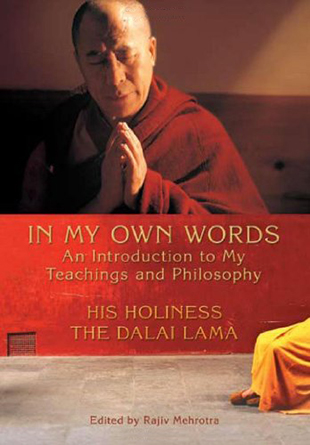"The phrase 'practicing a religious system' is not given to mere physical change or living in a monastery or recitation. Religious practice must be carried out in terms of one's own thought. If one knows how to bring the teachings into one's own thought, all physical and verbal deeds can be made to accord with practice. If one does not know how to bring them into one's own thought, even though one might meditate, recite scriptures, or spend one's life in a temple, it will not help; thought, therefore, is important for practice. Thus, taking refuge in the Three Jewels (the Buddha, his Doctrine, and the Spiritual Community), taking into account the relationship between actions and their effects, and generating an attitude of helping others are most important.
"Formerly in Tibet, there was a famous lama called Drom. One day Drom saw a man walking around a reliquary. 'Walking around a reliquary is good,' he said. 'Practice is even better.'
"The man thought, Then reading a holy book would be good. He did so, and one day while he was reading, Drom saw him and said, 'Reading a holy book is good; practice is even better.'
"The man thought, This also does not seem to be sufficient. Now if I do some meditation, that will certainly be practice.
"Drom saw him in meditation and said, 'Meditation is good; practice is even better.'
"The man was amazed and asked, 'How does one practice?'
"Drom answered, 'Do not be attached to this life; cause your mind to become the practices.' Drom said this because practice depends on thought."
